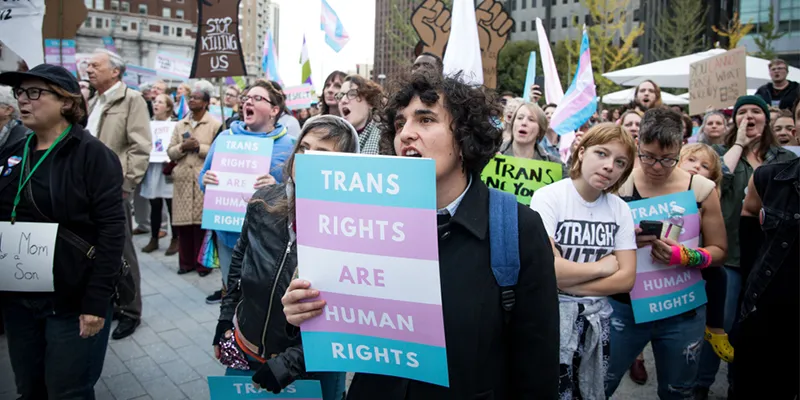WHO declassifies being transgender as a mental disorder
In a landmark move, the World Health Organization (WHO) has said that being transgender will no longer be a part of the International Classification of Diseases.

On May 25, the World Health Organization (WHO) announced a new set of guidelines for the revised eleventh version of the International Classification of Diseases (ICD-11), to reframe 'gender identity disorder' as 'gender incongruence,' and move it to a chapter about sexual health. The resolution was voted for by the World Health Assembly (WHA), the governing body of WHO, which represents all its 194 member states.
In a statement by Human Rights Watch, Graeme Reid, the LGBT rights director at the organisation said,
"The WHO’s removal of ‘gender identity disorder’ from its diagnostic manual will have a liberating effect on transgender people worldwide. Governments should swiftly reform national medical systems and laws that require this now officially outdated diagnosis."
For transgender people around the world, legally changing their names and gender markers on documents is a tedious process. They are required to present a 'gender identity disorder' diagnosis certificate from healthcare providers in order to "officially" be recognised with the name and gender they identify with, rather than self-identification being sufficient.
“Transgender people are fighting stigma and discrimination that can be traced in part to medical systems that have historically diagnosed expressions of gender non-conformity as a mental pathology. But it’s the stigma, discrimination, and bullying – and not anything inherent in gender nonconformity – that can inflict mental health problems in transgender people," added Graeme Reid.
In 2015, the World Professional Association of Transgender Health (WPATH) urged governments to “eliminate unnecessary barriers and to institute simple and accessible administrative procedures for transgender people to obtain legal recognition of gender." Yet, many governments around the world continue to consider transgender people mentally ill.
When it comes to India, the NALSA judgement of 2014 by the Supreme Court says that transgender individuals have the right to self-identification, and that it is illegal for government authorities to turn them away based on whether they have undergone gender affirmation surgery. However, many transgender people in the country are still struggling because of the stigma surrounding their identities.
Transgender people are equal members of society who require access to medical care and legal processes without being discriminated against. The WHO urges governments around the world to initiate legislative reforms, and better the lives of the transgender population.'


1553940546260.png?fm=png&auto=format&h=100&w=100&crop=entropy&fit=crop)



![[App Fridays] TikTok lovers, are you ready for Firework, the new short video platform in town?](https://images.yourstory.com/cs/2/a182c7e0140711e987e2f7248b252f46/Firework1571401406063png?mode=crop&crop=faces&ar=1%3A1&format=auto&w=1920&q=75)

